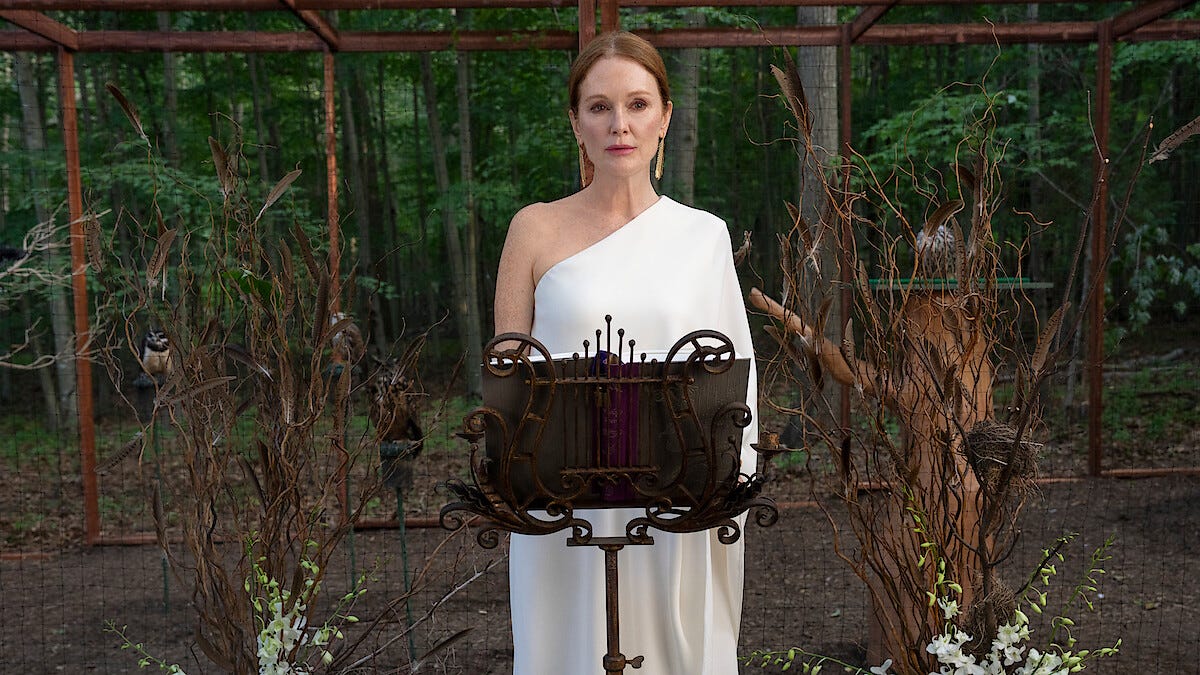The trope of the coolly monstrous woman is always a crowd-pleaser, and by the middle of the first episode of Netflix’s “Sirens,” we are sold: Kiki (Julianne Moore) is the villain of the story. A manipulator. A cult leader. Probably a murderer. The beautiful, powerful, fearsome and feared ice queen who must be overthrown.
We buy it, hook, line, and sinker. We hold the narrative unquestioningly, even as the storyline progresses with more nuance, even as Kiki displays more dimension, even as other characters reveal faults of their own. We hold faithfully to the Kiki-as-villain plotline that had been spoon fed to us early on until the last few minutes of this remarkable show. By the time we realize we’ve been duped, the credits are nearly rolling; not because there is a grandiose Mulholland Dr. plot twist, but because how it ends is always how it was going to end, the only possible ending, and the fact that we are surprised is a glaring indictment against our own lack of curiosity, our own biases.
Kiki is not a heroine, and she is not a saint. She is not a sympathetic or likeable character, even as a victim. But she is also not evil; she is not heartless. In fact, we see clear demonstrations of her heart — as a wildlife philanthropist, towards a motherless young woman, and with a dementia-tormented man — and still our suspicions hold. Because to leave room for our minds to change about a woman is to ask too much. Once we have decided she is a monster, a monster she will remain.
The series title is of course a reference to the sirens of Homer’s Odyssey, who lived among the cliffs allegedly charming sailors to their deaths with an irresistible song. In the myth, the sirens are given no backstory of their own; we know nothing of their motivations or fears, or of what they are even singing. We are only told that they are the villains, the dangerous ones, the ones who might thwart the mission. And we believe that; in allegiance to our hero, we do not question it.
“Sirens” is a wry work of art, in conversation with itself about class, power, trauma, and gender. Through its female characters, it explores the vulnerability that propels the cutthroat pursuit of safety, and calls for women to take responsibility for our own lives while raising questions about whether men impose restrictions on our ability to do so.
Viewers are left to decide for ourselves whether to cast judgment on any given character for their choices, but we’d be hard pressed to walk away monsterizing any of the women. Because “Sirens” doesn’t just give them a voice; it gives them a story.





I loved this show. The acting, the twists, the wry side eyes that felt so close to breaking the fourth wall. I couldn’t look away. Great take on it, friend!
Will queue this up!!